2020年05月22日
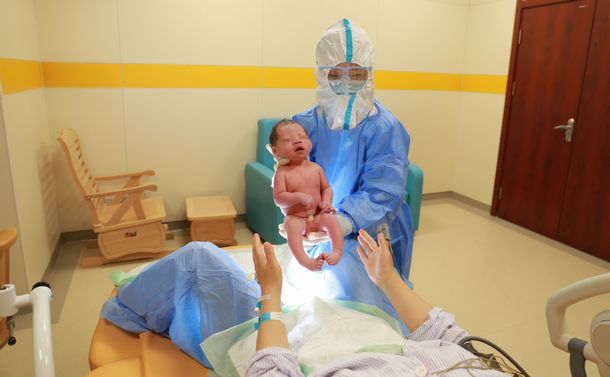 Wang Xueli is a midwife at the Shijiazhuang Fourth Hospital of Hebei Province, China. She is responsible for attending births from high-risk pregnancies during the COVID-19 pandemic.(Image: China Maternal and Child Health Association via UNFPA China)
Wang Xueli is a midwife at the Shijiazhuang Fourth Hospital of Hebei Province, China. She is responsible for attending births from high-risk pregnancies during the COVID-19 pandemic.(Image: China Maternal and Child Health Association via UNFPA China)
In several weeks in which people in some parts of the world have been given cause for optimism that they have passed the peak of the COVID-19 pandemic, we have seen how the extraordinary actions of individuals can change the trajectory for a whole nation.
Retired doctors putting themselves back on the front line, nurses making their own face masks so they can treat the sick, parents separated from their children so they can care for people suffering from the virus.
More often than not, these are women. Globally, women make up 70 per cent of the health workforce. They also have the majority of caregiving roles in homes and in communities. Women do this essential work in spite of obstacles and inequalities.
That’s why our updated Global Humanitarian Response Plan to fight coronavirus, published on 7 May, has women at its heart. We know from experience that investing in women and girls produces dividends for all. We see that again with COVID-19.
In hospitals and in homes, women are on the frontline in this fight against COVID-19. We know local actions translate into global gains. If there is one thing we have learned about this pandemic, it’s that the world is in this together and we can only defeat it if we act as one.
According to the International Labour Organization, women perform 76 per cent of the total hours of unpaid care work globally. They will carry more of the weight of caring for the sick and helping to stem the spread of the virus.
We must equip women with what they need. Let’s enable them to stay safe and supported. It’s the right thing to do but also the smart thing to do so they can continue to save and improve lives.
As health systems become stretched, many people with COVID-19 will need to be cared for at home. This will add to women’s workload, and put them at greater risk of becoming infected.
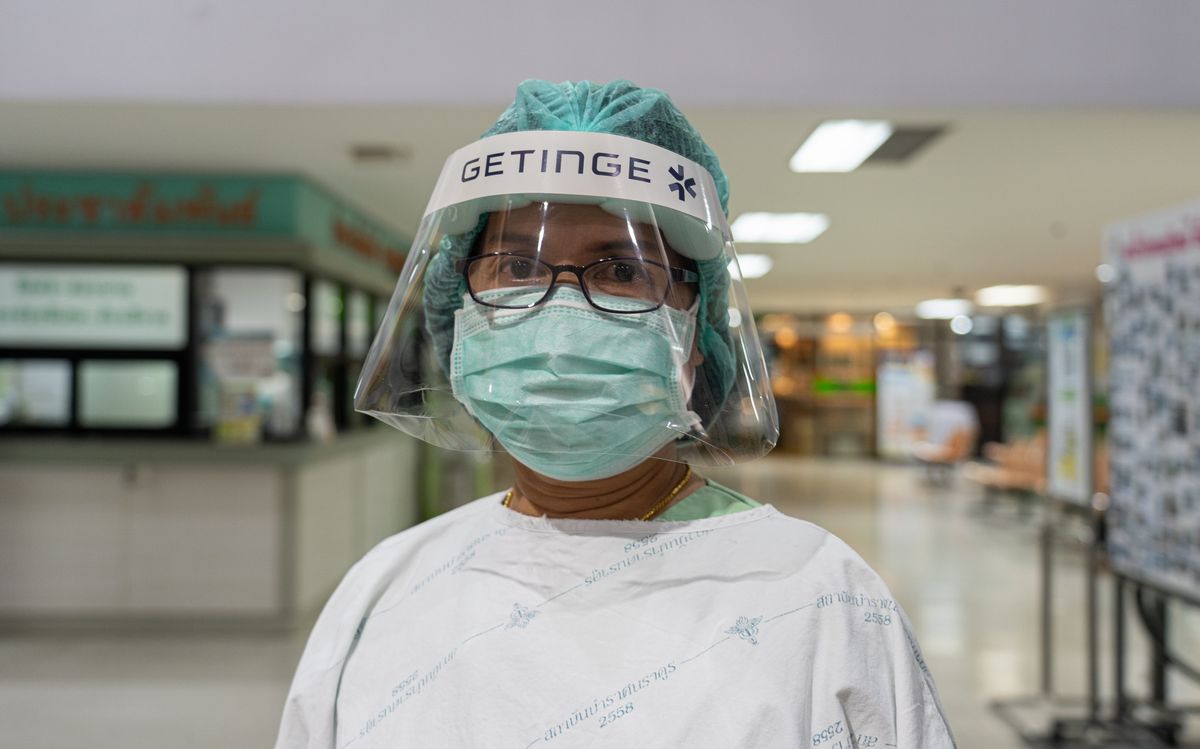 A Thai nurse-midwife in Bangkok gears up before heading to work at a COVID-19 ward at a government-run facility. Image: UN Women Asia-Pacific Regional Office.
A Thai nurse-midwife in Bangkok gears up before heading to work at a COVID-19 ward at a government-run facility. Image: UN Women Asia-Pacific Regional Office.And as the world fights the COVID-19 pandemic, we know we have another epidemic to overcome – the violence perpetrated against women, and the inequalities that leave them more likely to be living in poverty and without access to essential services.
We know lockdowns and quarantines are essential to suppressing COVID-19. Yet they can trap women with abusive partners. Over the last few weeks, there has been a dramatic jump in reported incidences of domestic violence in many countries. In some countries, the number of women calling support services has doubled.
Humanitarian settings already stressed by years of war and poverty will not be any different, except that often there are few places to report the abuse or to seek shelter so that women and their children can stay safe.
If we are serious about defeating this virus, we must promote and protect the health and rights of women, for their own well-being and so that they can continue to promote and protect the health of others.
That is why the UN’s global humanitarian response plan to fight COVID-19 sets out specific actions to achieve this in the most vulnerable settings.
This global plan is already helping install hand-washing facilities that are safe for women and girls to access; deliver vital medical equipment and supplies, including to address women’s health; and getting aid workers and supplies to where they are needed most.
The plan recognizes the disproportionate impact of the pandemic on women and girls. It also recognizes their power to defeat the virus. UNFPA will use resources from the appeal to prioritize the needs of women and girls – including working with women’s groups on the ground to create safe spaces.
All this is possible because of the generosity of donors. Much more is needed. We count on donors to continue funding the COVID-19 humanitarian response plan while sustaining support for existing humanitarian and refugee response plans.
And we urge all governments to make the prevention and redress of violence against women a key part of their national response plans for COVID-19.
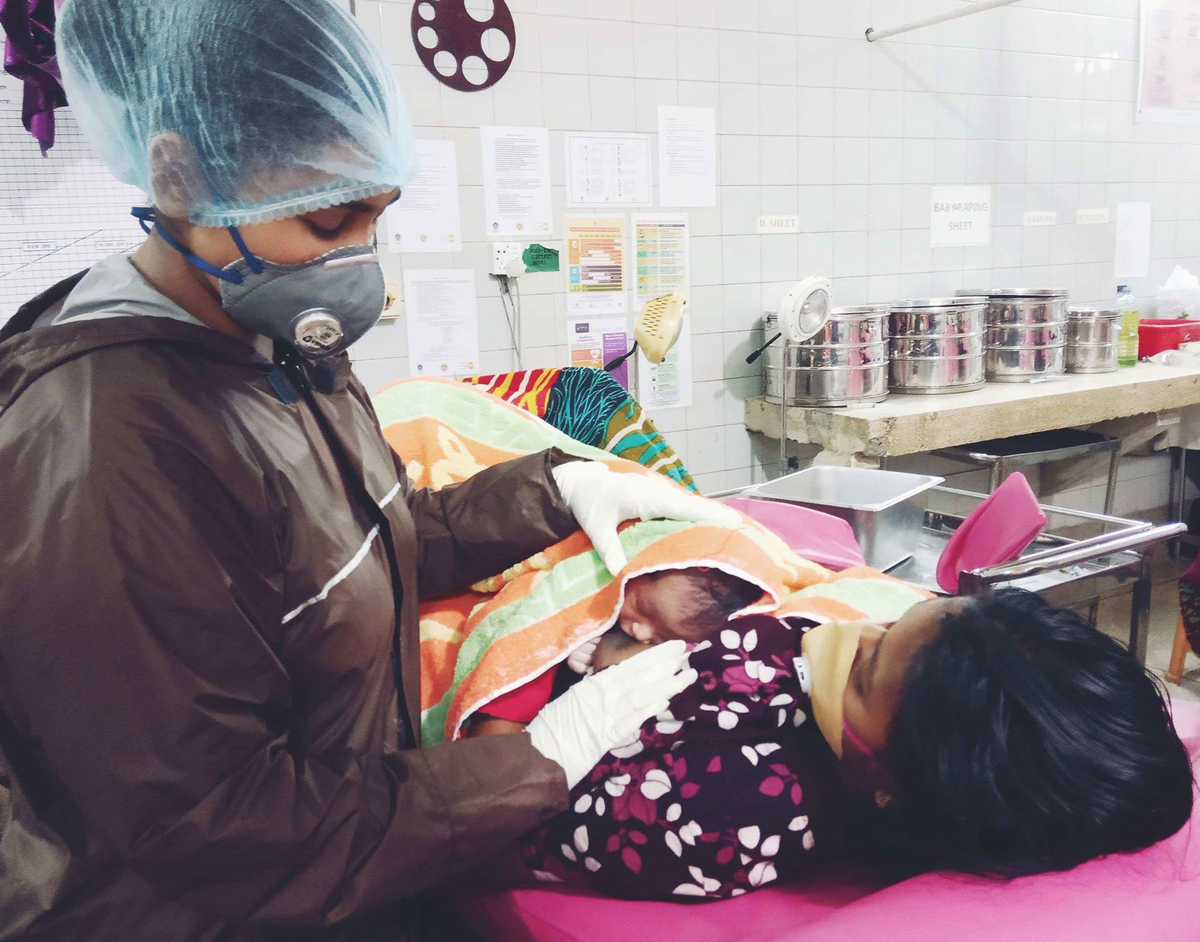 Midwife Selina Akter, wearing makeshift personal protective equipment, attends to a woman and her newborn in Cox's Bazar, Bangladesh. (Image: Selina Akter/UNFPA Bangladesh)
Midwife Selina Akter, wearing makeshift personal protective equipment, attends to a woman and her newborn in Cox's Bazar, Bangladesh. (Image: Selina Akter/UNFPA Bangladesh)Every day, women are overcoming obstacles and inequalities to treat and care for those infected with the virus, working hard to contain the virus, and helping their families and communities protect themselves.
We owe it to these women to give them the tools and services they need, and the justice and equality that is their right – in hospitals, in homes, and in their communities.
We are determined to do everything we can to fight this deadly virus, and that means addressing the inequalities that will otherwise hold all of us back.
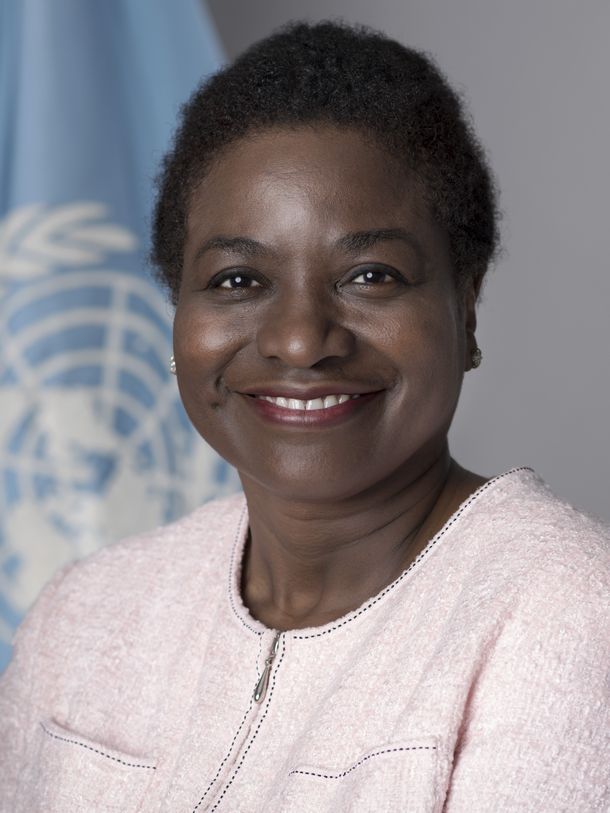 Dr Natalia Kanem, United Nations Under-Secretary-General and Executive Director of the United Nations Population Fund (UNFPA)
Dr Natalia Kanem, United Nations Under-Secretary-General and Executive Director of the United Nations Population Fund (UNFPA)
United Nations Under-Secretary-General and Executive Director of the United Nations Population Fund (UNFPA)
On 3 October 2017, United Nations Secretary-General António Guterres appointed Dr. Natalia Kanem as Executive Director of UNFPA, the United Nations Population Fund. Dr. Kanem brings to the position more than 30 years of strategic leadership experience in medicine, public and reproductive health, social justice and philanthropy. She started her career in academia with the Johns Hopkins and Columbia University schools of medicine and public health. While serving as a Ford Foundation Officer from 1992 to 2005, she helped pioneer work in women’s reproductive health and sexuality, in particular through her position as the representative for West Africa. She then served at the Foundation headquarters, becoming Deputy Vice-President for its worldwide peace and social justice programmes in Africa, Asia, Eastern Europe, Latin America and North America. From 2014 to 2016, Dr. Kanem served as UNFPA Representative in the United Republic of Tanzania. In July 2016, she was named Deputy Executive Director of UNFPA in charge of programmes. Dr. Kanem was founding president of ELMA Philanthropies Inc., a private institution focusing primarily on children and youth in Africa. She also has been a senior associate of the Lloyd Best Institute of the West Indies. Dr. Kanem holds a medical degree from Columbia University, New York, and a Master’s degree in Public Health, with specializations in epidemiology and preventive medicine, from the University of Washington, Seattle. She is also a magna cum laude graduate of Harvard University, where she studied history and science. Dr. Kanem becomes the fifth Executive Director of UNFPA since the Fund became operational in 1969.
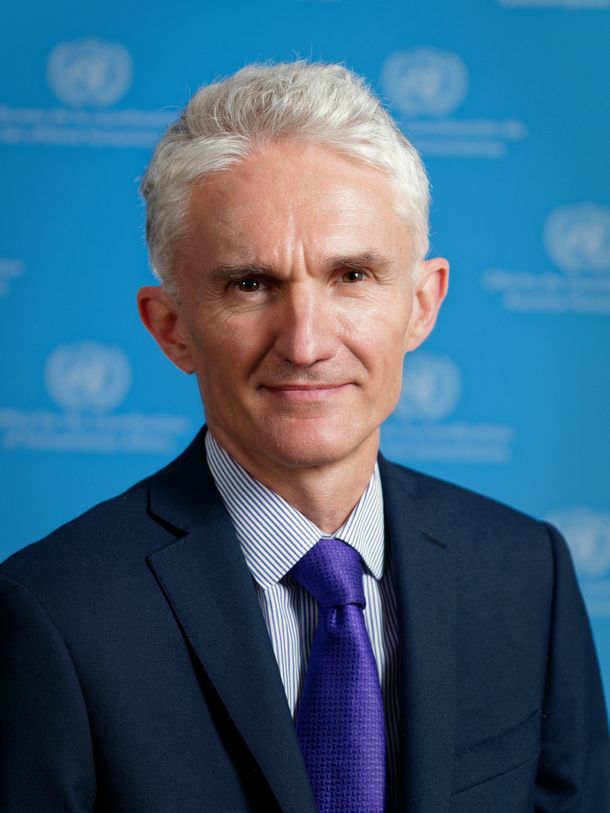 Mark Lowcock, United Nations Under-Secretary-General and Emergency Relief Coordinator, UN Office for the Coordination of Humanitarian Affairs (OCHA)
Mark Lowcock, United Nations Under-Secretary-General and Emergency Relief Coordinator, UN Office for the Coordination of Humanitarian Affairs (OCHA)
United Nations Under-Secretary-General and Emergency Relief Coordinator, UN Office for the Coordination of Humanitarian Affairs (OCHA)
In May 2017, Mr. Mark Lowcock of the United Kingdom was appointed as the UN Under-Secretary-General for Humanitarian Affairs and Emergency Relief Coordinator, and head of the UN Office for the Coordination of Humanitarian Affairs (OCHA).
With more than 30 years of humanitarian and development experience, Mr. Lowcock serves as the chief coordinator of the world’s humanitarian response in times of urgent crisis.
In his most recent position as Permanent Secretary for the Department for International Development (DFID), Mr. Lowcock led the United Kingdom’s humanitarian response to conflicts in Iraq, Libya and Syria, and to natural disasters in Nepal and the Philippines.
Prior to his leadership of DFID, Mr. Lowcock served as DFID’s Director General for Africa and Asia, coordinating its response to humanitarian emergencies in Haiti, Myanmar and Pakistan. He served previously as Director General for both Policy and Corporate Performance, and as Director of Finance.
Having served for extended periods in Kenya, Malawi and Zimbabwe, and with a subsequent designation as a Qualified Accountant, Mr. Lowcock brings a personal and analytical approach to humanitarian challenges. His leadership of a large and complex public organization has provided critical experience for his work as the world’s chief humanitarian advocate.
Mr. Lowcock holds a Master of Science in Economics from the University of London and a Bachelor of Arts in Economics and History from Oxford University. He is married to Julia Watson and they have two sons and a daughter.
有料会員の方はログインページに進み、朝日新聞デジタルのIDとパスワードでログインしてください
一部の記事は有料会員以外の方もログインせずに全文を閲覧できます。
ご利用方法はアーカイブトップでご確認ください
朝日新聞デジタルの言論サイトRe:Ron(リロン)もご覧ください